International Women’s Day 2019: Spotlight on Scientists of the RIPE project
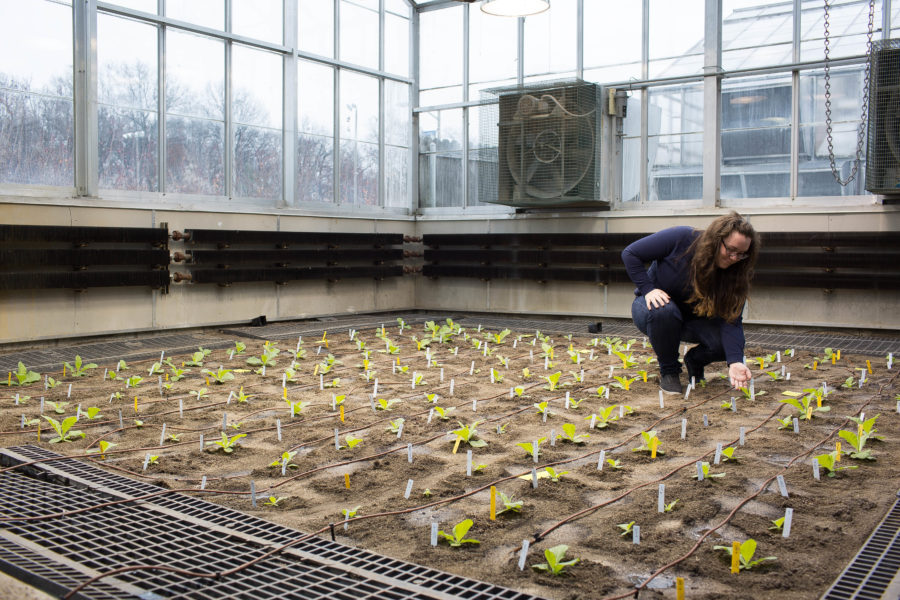
As part of SIN USA’s celebration of International Women’s Day 2019, SIN Chicago profiled four early-career scientists from the RIPE project, an international collaboration funded by the UK Department for International Development, Bill & Melinda Gates Foundation and the Foundation for Food and Agriculture Research. RIPE aims to improve photosynthesis, the process plants use to convert the sun’s energy into biomass, in order to increase crop productivity and feed a growing world population. Through their talent and dedication, these four scientists, working in the UK and Illinois, are making significant contributions toward global food security. We asked them about their research, the roles women have played in their career path, the challenges they perceive women in science to face and what can be done to address these. Responses have been edited for length and clarity.
Describe your research. What is the broader impact of your science?
Dr Katherine Meacham-Hensold, postdoctoral research associate, University of Illinois: Current methods of measuring photosynthesis in field limits the speed at which we can identify promising crop cultivars, and holds back progress in improving crop yields. I develop and use technology to measure crop performance in field trials using sensors and hyperspectral imagery. My work helps speed up the translation of better performing crops to those who will need them most in the face of future food security challenges.
Dr Amanda Cavanagh, postdoctoral research associate, University of Illinois: We lose trillions of potential calories per year when food crops, like wheat, rice and soybean, mistakenly use oxygen instead of a carbon dioxide molecule during photosynthesis. I’m working to replace this process, called photorespiration, with a more efficient synthetic pathway, to improve gains in biomass and increase crop yields.
Dr Patricia Lopez-Calcagno, senior research officer, University of Essex: My research focusses on addressing areas of limitation in the photosynthetic process. Specifically, we identify which steps are behaving as bottlenecks in the carbon assimilation process and, using genetic manipulation approaches, we increase the amount of proteins necessary for overcoming these limitations. Once these strategies are translated into crops, we expect to see significant increases in yield, which will be of great relevance to both smallholder farmers and large-scale agriculture.
Dr Elizabete Carmo-Silva, lecturer in plant science, Lancaster University: I am fascinated by plants and their interaction with the surrounding environment. My research focuses on an enzyme in photosynthesis called Rubisco activase. My goal is to use our knowledge of Rubisco activase properties to increase the efficiency of carbon assimilation and, subsequently, of crop production in the field. This research can enhance food security in a changing climate while reducing the environmental impact of agriculture.
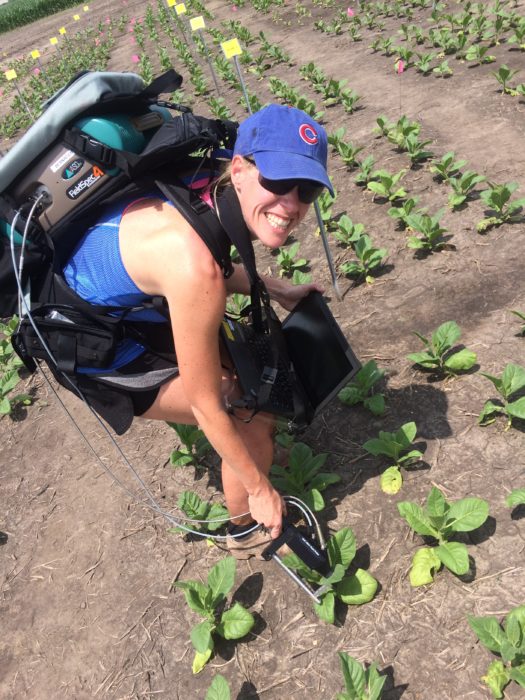
What made you decide to pursue your research?
KMH: Early in my undergraduate studies, I learned about work going on at IRRI (International Rice Research Institute) in the Philippines to ensure the production of the most important global calorie source: Rice. I was struck by the challenge of ensuring that those in the most vulnerable parts of the world would have enough food in the face of limited resources, land and climate change. I knew that as a crop scientist I could help towards the effort to improve global food security.
ECS: An authentic fascination for Rubisco! Which was transmitted to me by an amazing professor I had during my undergrad studies. She was so passionate about Rubisco that I could not resist becoming deeply engaged and excited to learn more! And nearly 20 years later I am still super excited to learn more!
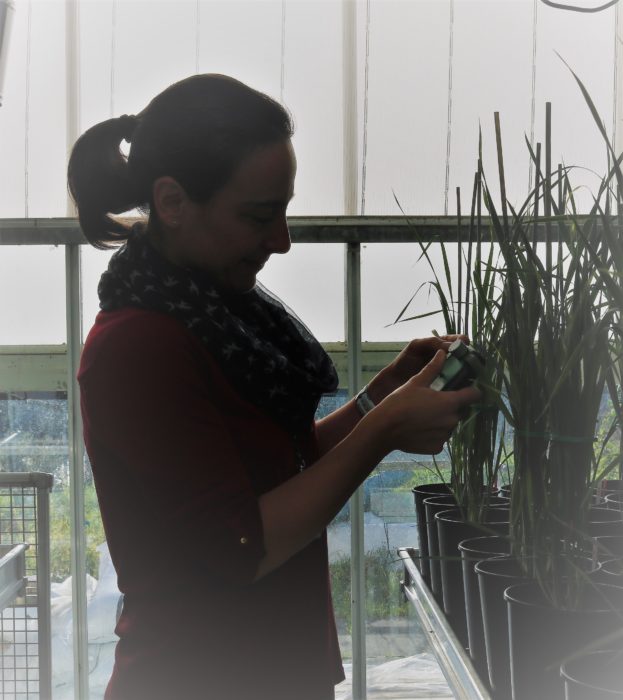
How have other women in STEM influenced your career?
KMH: Advice from female scientists I look up to has helped me to see that while it is challenging, women can have both a family and an impactful career. The best advice I’ve received is to work with efficiency during work hours, then leave your work at work while you live your life.
AC: I have been graced with exceptional female mentors in the plant science research world who embody the principle of reaching down the ladder to pull the next generation of women up as they climb. My first job in science as an undergraduate student was based in an all-female lab in Canada, and the support and mentorship I gained there helped me realize that I could follow this career path. On the RIPE project, I’m lucky to learn from incredible women in science not only here in Illinois, but also with our global collaborators in the UK and Australia. Science can be male-dominated, and I consider myself very fortunate that I get to work with a large team that includes many hard-working and passionate early career female scientists. Having a strong cohort of women in science at my level is like a secret weapon – we support, promote, critique and learn from each other to increase all of our chances at success.
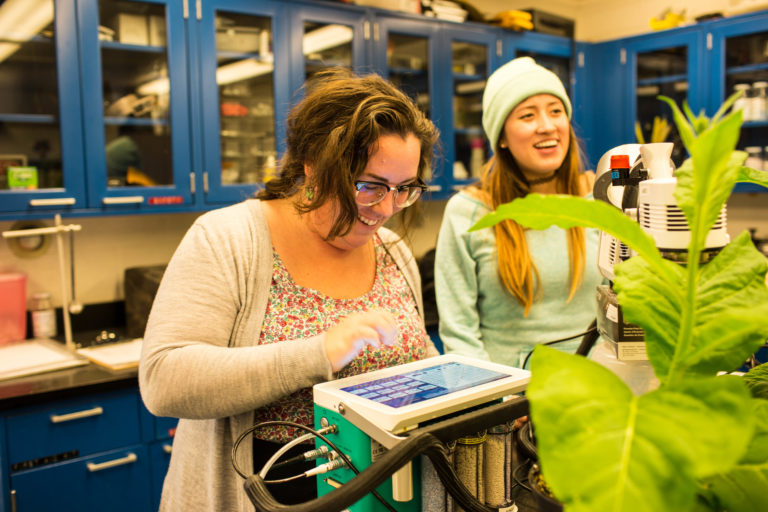
PLC: I have always been surrounded by a very supportive community, where women have never been under-represented. Coming from a family of scientists, I grew up seeing my parents sharing all family and home responsibilities equally while both pursuing exciting and successful academic careers. Two of my aunts have also pursued careers in STEM and never made me doubt that a successful career in science was compatible with family goals. Additionally, several of my mentors have been incredibly driven women who have guided and supported me each step of the way. Currently, I belong to a fantastic community of young women in science where many of us share both career and family goals and expectations. Being able to count on this community has really empowered me to keep moving forward.
ECS: During my undergrad studies, two female professors who were teaching photosynthesis had a big impact on setting me on my path. They were amazingly supportive and got me into a PhD studying Rubisco in C4 plants. Their belief in my ability to deliver world-class research gave me the energy I needed during my PhD. I still think of them any time I doubt my ability to do something!
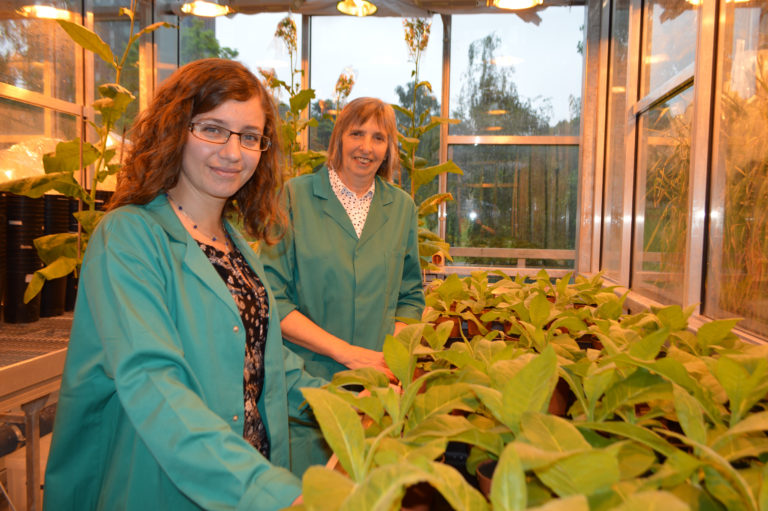
The theme of International Women’s Day 2019 is #BalanceforBetter. What do you think the scientific community can do to promote a more gender-balanced world?
KMH: There is a need to recognise the reality of having both a career and starting a family. Often the expectation for young scientists is to work long hours in order to be competitive. This does not fit with the challenges of starting and raising a family. Maternity and paternity support needs drastic change to keep young women in science.
AC: If current trends continue, plant biology will likely reach gender parity in senior roles in about 20 years. But even when women make it to leadership positions, they still face gender-based discrimination. To realise a more equitable community, we need to address the systemic barriers in place for women in science – everyday sexism, outright sexual misconduct, unequal performance expectations, inadequate family leave policies, and punishing travel/work schedules. Recruiting more women to science careers won’t solve the problem – we need men and women to step up and support the women we know professionally. It’s also important to remember that not all women experience the same barriers to success, and I hope a more gender-balanced world also works to increase the proportion of women of different races and nationalities in science.
PLC: Personally, my main concern is unequal parenting rights. Maternity leave should be transformed into parenting leave where both parents are able, from the beginning, to share equally in the responsibilities of a family life. Additionally, more possibilities for part-time careers in science would be of huge help, particularly if this was available for both parents at the same time. It is still mostly women who keep taking a step back from their careers when family care of young children or elderly relatives is required. Many studies show how the average woman’s career progression slows or even stops after the birth of her first child, while a man’s average career trajectory is hardly affected. This needs to change!
ECS: I truly believe that promoting kindness in science would go a long way. Women are less keen to put up with an unkind environment. By this I do not mean being nice, we need critical thinking more than ever in academia. Constructive feedback fuels our continuous development into our better selves. And a kind environment enables people to be themselves and to become their best!
By: Kyle Dolan | Head of Science & Innovation, British Consulate-General Chicago | Guest blogger for Science and Innovation Network USA | Part of Global Science and Innovation Network
